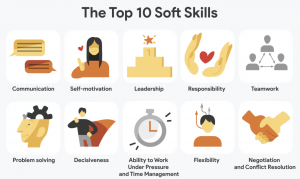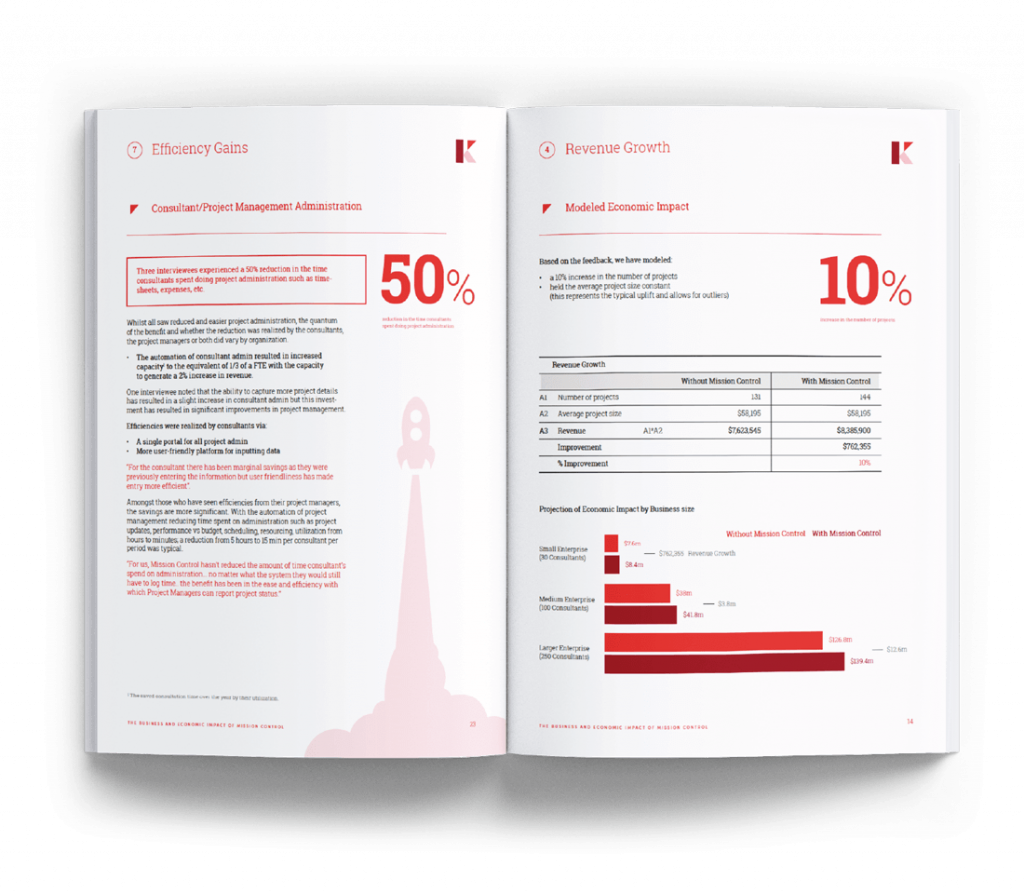2020 and 2021 have seen significantly changed the world of work and project management. Project Management trends, such as the increase in remote work, digital transformation, the utilization of multiple project management methodologies simultaneously, and the demand for skilled project managers, have seen project teams—and the way they work—shift.
The best way for project managers to stay ahead of the game is to keep up with new and upcoming trends and invest in their professional development.
The following are the eight project management trends that we think will dominate in 2022. We also share advice on how you can prepare for these changes.
1. Digital transformation comes to project management
Digital transformation is rapidly edging its way in every segment of traditional businesses, and nowhere is it more evident these days than the day-to-day activities of project management.
With 8 out of 10 project managers believing that project portfolio management is crucial to business success, embracing and implementing digital transformation is non-negotiable. Project managers who do so, acquire an extensive view of the project management lifecycle and understand how to leverage people, processes, and technology to help their organizations achieve their goals.
According to The Enterprisers Project, digital transformation is “the integration of digital technology into all areas of a business, fundamentally changing how you operate and deliver value to customers.”
From a project management perspective, digital transformation isn’t something to be feared. Yes, it will take time, effort, and a bit of disruption. But it will also give you the power to better manage your teams no matter where they are located, deliver projects more efficiently, better serve your customers and clients and ultimately, help your company gain a competitive advantage and realize its goals.
Speaking of competitive advantage, research shows that 41% of companies that digitally transform experience increased market share; 37% see increased customer engagement in digital channels; 37% have more positive employee morale, and 30% experienced increased customer revenue.
For those companies that turn a blind eye to digital transformation, the repercussions could prove costly. As the PMI Pulse of the Profession Report found 42% of project managers who have lagged behind in digital transformation had lost money on failed projects, and 46% experienced scope creep.
Clearly, to remain competitive in the digital age and beyond companies must invest heavily into digital transformation. A project manager possessing a high understanding of digital transformation, remains vigilant, looking for opportunities in new technologies as they impact every aspect of the project cycle, from design to application to delivery.
2. Remote and hybrid teams are here to stay
The COVID-19 pandemic turned remote work from a trend to the norm as many employees that used to work in an office setup had to adapt to working-from-home abruptly.
This new reality is transforming the role of the project manager. Teams now comprise of individuals spread out across various geographical locations, diverging time zones and a variety of cultures.

Understanding the nature of remote and hybrid teams is important for project managers to be able to plan projects and maintain communication with their team members. Fortunately, thanks to technology, teams are now able to collaborate and work together across greater distances than ever before. Tools like Mission Control—required for effective collaboration—make this easier than ever before.
3. Incorporating a mix of project management methodologies
Project management trends are seeing businesses shift away from a single project management methodology in favor of mixed approaches. While project managers have been using traditional project management tools, such as Agile, Scrum, Kanban, Stage-Gate, a Gantt chart, a Kanban Board, and others for years, today’s changing landscape requires additional flexibility that these traditional approaches may not provide.
It’s now more important than ever for project managers to be flexible and adaptable, which enables them to quickly respond to changes in the market and shifting customer needs.
The secret to achieving this kind of flexibility and adaptability lies in using a combination of methodologies to manage their new projects instead of sticking to one.
4. Project management software will become key
One of the most important project management trends we are seeing is software. As digital transformation continues to disrupt the industry, project managers are turning to more advanced applications to help them remain on top of their workflow. Project management software is becoming key to the success of projects as more project managers adopt SaaS platforms to manage their teams, projects, and processes.
As companies become increasingly reliant on technology, it makes sense that they continuously update their existing tools to advanced ones. Project management tools built specifically for project managers, for instance, offer the ability to collaborate with team members through an online interface.
Moreover, managing virtual teams is practically impossible without cloud-based SaaS solutions. Project managers will want to embrace these tools to manage virtual teams and help them collaborate from anywhere they are.
Communication and collaboration aside, project managers need to keep their teams focused and productive. A dedicated time tracking software such as Mission Control will eliminate guesswork and inefficiencies in your projects. Additionally, you can use the tracker for automatic billing and invoicing. If you set your tracker up right, you hardly have to do manual calculations at all, saving you precious hours best spent elsewhere.
5. A focus on soft skills
Project management and soft skills go hand-in-hand. While the best project managers have strong technical skills, soft skills have increasingly become the differentiating factor.
Although soft skills may not seem directly related to the outcome of the project, they have a lot of importance in the entire cycle of a project. These are the people skills that can help project managers effectively manage their team and ensure projects are running smoothly.
Soft skills are harder to learn because they’re developed through experience. But, in a world where technology is taking over, soft skills are exceedingly valuable because tech cannot recreate much of their interpersonal or creative aspects.
So what are some of the top soft skills you should develop?

Leadership and motivation skills help project managers to lead their teams to success. Verbal and written communication is also an integral skill for any project manager to have. Additionally, project managers need the ability to make fast and effective decisions for their teams.
Other key soft skills that will make the best project managers stand out are time management, adaptability, organization, strong work ethic, relationship-building, teamwork, flexibility, and conflict resolution.
6. Project managers must become familiar with AI, IoT, Machine Learning, and more
Big data, Artificial Intelligent (AI), the Internet of Things (IoT), and Machine Learning (ML) are the drivers of the digital transformation taking place today. To stay competitive, project managers need to understand these technologies. Regardless of the projects they handle, project managers are bound to encounter any of these high-powered technologies.
In fact, research shows organizations believe that AI can perform roles such as PM assistant (52%), PM advisor (42%), and PM substitute (3%).
To stay ahead of the curve, leverage the power of AI, ML, IoT, and big data to learn more about your operations and competitors. For example, it’s possible to use AI to generate daily reports about your projects or flag potential risks. When you have something that can alert you of an emerging problem then you’re ahead of the game.
7. Automation will establish a foothold in project management
At its heart, automation is about solving a problem or a task that can be reliably shifted from a person to a machine. Many sectors have enjoyed amazing progress due to automation, and now there are several opportunities for automation in project management.
Rather than replace the role of project manager, automation will relieve project managers from some of the more mundane tasks and help bring consistency and efficiency to their projects.
Automating things like tracking time, updating estimates, and reporting schedule progress will easily reduce meeting time and improve accuracy. As a result, this will free up your team to focus on the more valuable tasks.
You can use a central hub such as Mission Control’s Control Pad to schedule Daily Digest emails, set up action progress tracking and centrally manage your timesheet, and also set up your periodic invoicing process.
8. Increasing demand for tech-savvy, skilled project managers
A project manager’s tech know-how can elevate them from average to expert in a heartbeat. The tech-savvy project manager not only comprehends project management theory but has the skills to apply what they know. Additionally, they’re able to put the right tools to good use.
With more teams going remote, companies are increasingly relying on project managers to keep things unified and keep projects moving. Skilled project managers who understand different methodologies, are flexible, have the necessary soft skills, can work well remotely, and can easily adapt to different technologies are increasingly becoming high in demand.
Stay Ahead of Project Management Trends
The project management industry has rapidly changed in 2021, thanks to the pandemic and tech disruption. This change will continue well into 2022. Being aware of what lies ahead is essential if you want to remain competitive. In addition, you’ll be better equipped to take advantage of new opportunities and develop your skill set accordingly.
As we head into 2022, remote work and digital transformation are key areas for project managers to focus on. It’s imperative that they adopt the right tools that make sure businesses are future-proofing themselves.
Mission Control is a perfect project management partner for businesses looking to stay ahead of project management trends in 2022. It gives a central hub to manage all your teams. You can assign tasks, collaborate and communicate with teams, track time and work done, automate billing and invoicing, and much more.
To learn more about how Mission Control can help you stay ahead of the curve, get in touch with our team today.





